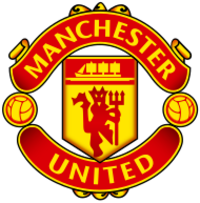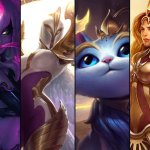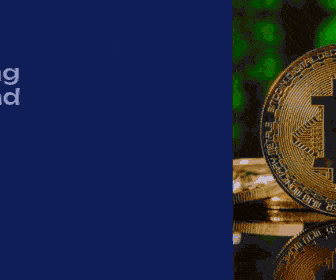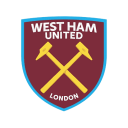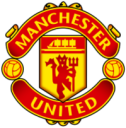
Founding and Early Years (1878 – 1945)
- Founded: Manchester United was originally established as Newton Heath LYR Football Club in 1878 by the railway workers of the Lancashire and Yorkshire Railway. In 1902, after near bankruptcy, the club was renamed Manchester United, under new ownership led by J.H. Davies.
- Early Success: The club’s first taste of major success came in 1908 when they won the Football League Championship. The following year, they secured their first FA Cup victory in 1909. However, despite these successes, the early decades were challenging, with inconsistent performances and financial difficulties.
Post-War Era and Busby Years (1945 – 1969)
- Matt Busby’s Impact: In 1945, Matt Busby took over as manager and brought a transformative philosophy to Manchester United. His focus on youth development and attacking football shaped the club’s future. Busby’s “Busby Babes,” a young, talented squad, led the club to domestic dominance in the 1950s.
- Munich Air Disaster (1958): One of the darkest moments in the club’s history came in 1958 when the team was involved in a plane crash in Munich, which claimed the lives of 23 people, including 8 players. Despite the tragedy, Busby rebuilt the team, and in 1968, Manchester United became the first English club to win the European Cup (now known as the UEFA Champions League).
The Post-Busby Struggles (1969 – 1986)
- After Matt Busby’s retirement in 1969, Manchester United struggled to maintain its success. The club went through a series of managers and had a period of underachievement, even being relegated to the Second Division in 1974. However, they quickly returned to the top flight and managed to win a few domestic cups during this period.
The Sir Alex Ferguson Era (1986 – 2013)
- Turning Point: Sir Alex Ferguson’s appointment in 1986 marked the beginning of the most successful period in Manchester United’s history. After some initial struggles, Ferguson led the club to win their first Premier League title in 1993, ending a 26-year wait. This was the start of an era of dominance in English football.
- Unprecedented Success: Under Ferguson, Manchester United won 13 Premier League titles, 5 FA Cups, and 2 UEFA Champions League titles. In 1999, the club achieved a historic treble, winning the Premier League, FA Cup, and UEFA Champions League in the same season, a feat no other English team has accomplished.
- Philosophy and Legacy: Ferguson was known for his ability to develop young talents and his tactical acumen. He also brought in iconic players like Eric Cantona, Cristiano Ronaldo, and Wayne Rooney, who played pivotal roles in United’s success.
Post-Ferguson Years (2013 – Present)
- After Ferguson’s retirement in 2013, Manchester United has struggled to replicate the same level of success. David Moyes, Louis van Gaal, José Mourinho, and Ole Gunnar Solskjær all had stints as managers, with mixed results. While the club has won the FA Cup (2016), UEFA Europa League (2017), and EFL Cup, their league performances have been inconsistent.
- Recent Developments: Under current manager Erik ten Hag (appointed in 2022), Manchester United has shown some improvement. In the 2022-23 season, they finished in the top 4 of the Premier League, qualifying for the UEFA Champions League and also won the EFL Cup, their first silverware in six years. The club continues to rebuild, with a focus on youth development and marquee signings like Casemiro and Bruno Fernandes.
Club Culture and Global Reach
- Fanbase: Manchester United is one of the most supported football clubs globally, boasting a passionate fanbase. Old Trafford, their home ground, is known as “The Theatre of Dreams” and holds over 74,000 spectators.
- Commercial Success: Beyond football, Manchester United is one of the wealthiest and most valuable football clubs, with extensive sponsorship deals and global commercial partnerships. Their brand and marketability have made them one of the most recognized sports teams worldwide.
Rivalries
- Manchester City: Known as the “Manchester Derby,” this rivalry has intensified in recent years due to City’s rise in prominence, especially with the backing of their wealthy owners.
- Liverpool: The fierce rivalry between Manchester United and Liverpool is one of the most famous in world football, driven by both clubs’ historical success and competition for dominance in English football.
- Leeds United: Known as the “Roses Rivalry,” this is another historic fixture, though the teams have not always played in the same division in recent years.
Key Figures in Manchester United’s History
- Sir Matt Busby: Legendary manager who rebuilt the club after the Munich tragedy and led them to European glory.
- Sir Alex Ferguson: The most successful manager in English football history, overseeing United’s dominance in the 1990s and 2000s.
- Bobby Charlton: A Munich survivor and one of England’s greatest players.
- George Best: One of football’s first true superstars, known for his flair and skill.
- Eric Cantona: A transformative figure in the club’s rise under Ferguson, known for his leadership and charisma.
- Cristiano Ronaldo: Played for United in two stints, winning multiple trophies and becoming one of the greatest players of all time.
Honours and Achievements
- Premier League Titles: 20 (Most in English football)
- FA Cups: 12
- UEFA Champions League Titles: 3
- Intercontinental Cups/FIFA Club World Cup: 2
Manchester United continues to be a global football powerhouse, aiming to return to the pinnacle of European football with the right managerial and player investments.


